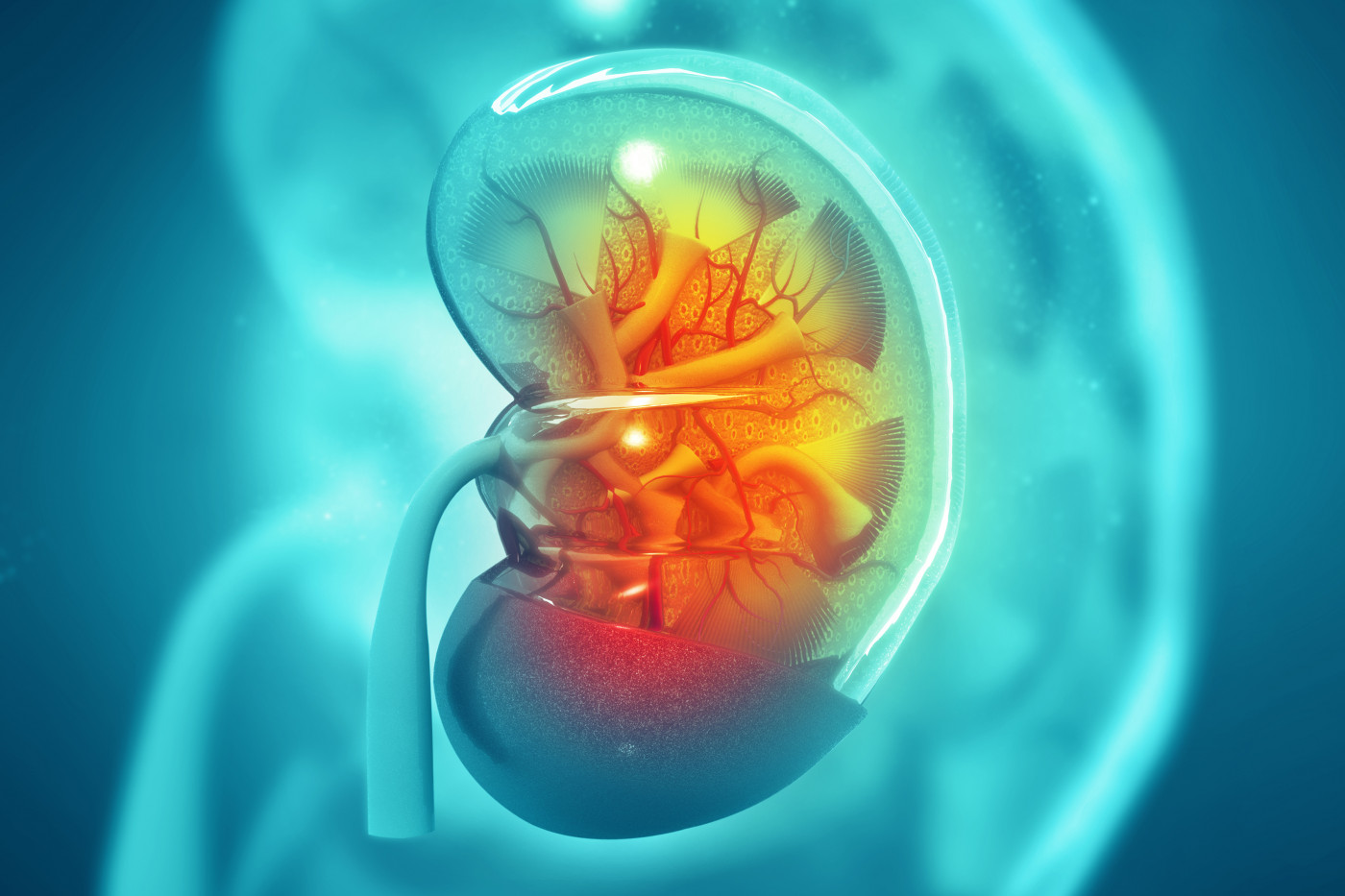FAQs About Kidney Health and Dialysis in Fabry Disease

crystal light/Shutterstock
Fabry disease is a rare disease characterized by the buildup of a fatty molecule (globotriaosylceramide Gb3 or GL-3) inside cells. This accumulation can lead to complications that include kidney disease. Normally, the kidneys filter wastes from the blood. Gb3 buildup can prevent this clearance, allowing waste products to possibly build in the blood.
Many Fabry disease patients can manage their kidney symptoms with diet and medication. But if kidney failure occurs, they likely will need to be treated with dialysis or a kidney transplant.
Here are a few FAQs and answers about dialysis.
What is dialysis?
Dialysis is a medical procedure that filters the blood of waste products and excess fluids when the kidneys are unable to do so. Dialysis can be broadly divided into two types: hemodialysis and peritoneal dialysis.
People are usually more familiar with hemodialysis, where the blood is removed, filtered, and returned to the body. Peritoneal dialysis is less common. It uses the lining of the abdomen as a filter. Patients pump fluid into their abdominal cavity. The wastes diffuse out of the small blood vessels in the lining of the abdomen into the fluid, which is then pumped out of the abdominal cavity.
Can I do dialysis treatments at home?
Depending on your needs, insurance, and what’s available in your area, you may be able to do your dialysis treatments at home. However, many patients undergo this treatment at a hospital or clinic several times a week.
How long does dialysis take?
It depends on which type of dialysis you are receiving. Many people need hemodialysis about three times a week, with each session taking about four hours.
Peritoneal dialysis varies a bit more. It can either be done in about an hour, several times a day, or overnight while you are asleep.
You cannot postpone or delay dialysis treatments. It’s very important to keep to the treatment schedule your doctor recommends.
Will dialysis cure my kidney disease?
No. Dialysis won’t cure kidney disease or Fabry disease. It provides support so that your kidneys may be able to heal some damage.
Will I need dialysis treatments forever?
It depends. Some patients need dialysis to get past a crisis, while others will need dialysis until after they have completely recovered from a kidney transplant.
Would a special diet help protect my kidneys?
If you are on dialysis or need to support your kidney function so that you don’t need dialysis as frequently, you should eat a “heart-healthy” diet to help protect your kidneys. This diet is low in salt, potassium, and fat. It is rich in fruits, vegetables, low-fat dairy, nuts, legumes, and lean protein.
Your doctor can put you in touch with a registered dietitian, who can help you design a meal plan that is safe and healthy, while still being something you can maintain long-term.
Many patients also need to manage and monitor their fluid intake while on dialysis.
Should I stop exercising?
No. Moving is good for you, and activity can help some people with the fatigue and insomnia that dialysis may cause. However, you should talk to your care team to make sure that the specific exercises you plan to do won’t be dangerous for you while you are under dialysis treatment.
Will I be able to go back to work?
Most people are able to work once they have adjusted to dialysis and its side effects. If your job involves manual labor or heavy lifting, however, you may not be able to work while receiving dialysis.
Will I be able to travel?
Travel is possible while on dialysis. You will need to plan ahead, however. Talk with your doctor in advance of your travel arrangements. You will need to continue with your dialysis treatments near your travel destination, or be set up with a portable dialysis machine.
Does it hurt?
Small surgical procedures are required for dialysis — a port for hemodialysis, and a small surgery for peritoneal dialysis. These procedures may be uncomfortable, but the process of dialysis itself should not hurt. However, some patients may experience complications.
What are the potential complications?
Complications as a result of dialysis are rare.
Your treatment team will let you know what side effects are common, and which are a sign that something might be wrong.
Many patients experience changes in blood pressure, cramping, sleeping problems, anemia, and fluid overload. Some patients develop inflammation around the heart (pericarditis).
You should also keep an eye out for signs of inflammation or infection surrounding the dialysis port, if you have one.
Last updated: June 19, 2020
***
Fabry Disease News is strictly a news and information website about the disease. It does not provide medical advice, diagnosis, or treatment. This content is not intended to be a substitute for professional medical advice, diagnosis, or treatment. Always seek the advice of your physician or other qualified health providers with any questions you may have regarding a medical condition. Never disregard professional medical advice or delay in seeking it because of something you have read on this website.






